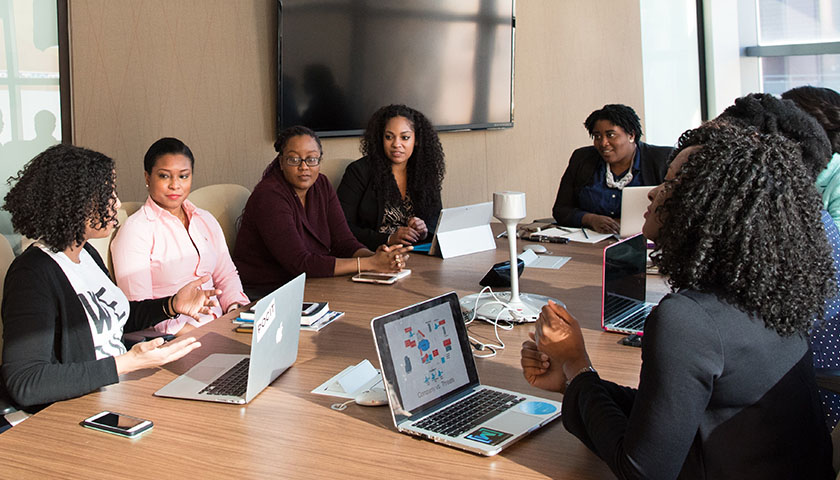Hundreds of black women in Atlanta will be the recipients of no-strings-attached monthly checks for the next two years thanks to a nonprofit’s experiment with Universal Basic Income (UBI).
The program will be centered in Atlanta’s Old Fourth Ward, birthplace of Martin Luther King Jr., which reportedly has one of the worst poverty rates in the city.
“We know this story of the Old Fourth Ward, and the trends that are happening, are not just indicative of this neighborhood, but what’s happening across the country,” Hope Wollensack said.
Wollensack is the executive director of the Georgia Resilience & Opportunity Fund (GRO), which says it is “exploring bold solutions to racial justice — and engaging community members and policy decision makers to do it.”
The UBI program will give away $13 million total over the next two years, but only to black women. Those women will receive an average of $850 per month, and a total of 650 black women will be enrolled in the program.
They will be divided randomly into two groups. One group will simply receive $850 per month for two years, and the other will receive $4,300 upfront, with $700 monthly payments for the duration of the program.
“Economic insecurity is certainly pervasive and felt by many groups, but some of the most acute impacts are felt by women of color, and principally Black women,” Wollensack reportedly said.
GRO says it has plans to expand the program to other parts of Metro Atlanta in years to come.
Failed Democrat presidential candidate, and later failed New York City mayoral candidate Andrew Yang popularized the idea of UBI during his 2020 bid for the Democrat Party’s presidential nomination.
Yang called his program the Freedom Dividend.
“Andrew would implement the Freedom Dividend, a universal basic income of $1,000/month, $12,000 a year, for every American adult over the age of 18. This is independent of one’s work status or any other factor,” his campaign website said. “This would enable all Americans to pay their bills, educate themselves, start businesses, be more creative, stay healthy, relocate for work, spend time with their children, take care of loved ones, and have a real stake in the future.”
He claimed that his UBI program would grow the economy by more than 12 percent, and increase the workforce by more than 4.5 million people, though it remains largely unclear how that would work.
Yang also justified the plan as a way to offset job losses due to increased automation.
– – –
Pete D’Abrosca is a contributor at The Georgia Star News and The Star News Network. Follow Pete on Twitter. Email tips to [email protected].





